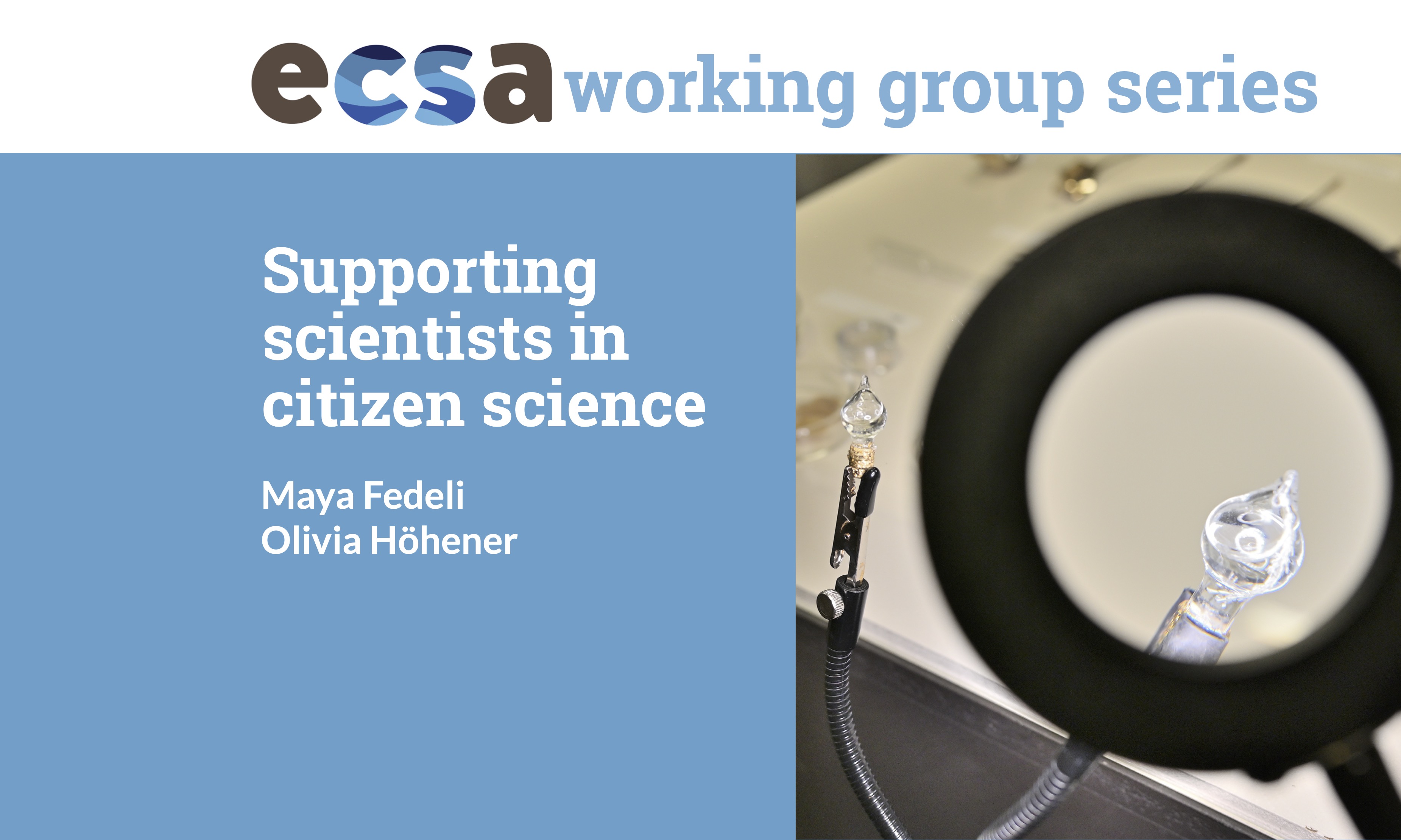
Supporting scientists in citizen science
Maya Fedeli
Jan. 2, 2025, 2:35 p.m.
Authors: Maya Fedeli and Olivia Höhener
This article inaugurates the new ECSA working group series that recounts the experiences developed within the ECSA working groups with the wider citizen science community.
More on this series: Supporting citizen science: building stronger citizen science hubs
and Supporting citizen science: building stronger citizen science hubs
On September 9th, the citizen science and universities working group gathered to address the topic of ‘Supporting scientists in developing and overseeing citizen science’, which has been identified as an activity many of our universities-based members are contemplating. We addressed this topic from different points of view, from the fresh perspective of an institution that only recently initiated its journey in supporting citizen science to the seasoned insights of an organisation completely devoted to the promotion of citizen science.
Maya Fedeli, citizen science contact point for Università Vita-Salute San Raffaele (UniSR), in Milan, Italy, led the way explaining the challenges she faces in her everyday activity in a research environment that only a few years ago was almost completely unaware of the meaning of the locution “citizen science” and has since engaged with and developed ongoing citizen science projects. The European project TIME4CS has played a pivotal role in driving institutional reforms within her university to support the advancement of citizen science, setting a valuable benchmark for other institutions to emulate. TIME4CS identified 4 Intervention areas to stimulate the institutional changes necessary to promote citizen science:
- Research: Acknowledgment by the Research Performing Organisations (RPOs) ecosystem of citizen science as an evolving set of research methods and of its societal and educational benefits, through use of citizen science in research projects and creation of citizen science communities of practice;
- Education and Awareness: Activities to raise awareness and build capacity amongst researchers, funders and civil society of criteria for successful citizen science activities in compliance with ethical, legal and privacy regulations. This includes events to promote citizen science and training programmes within the RPOs (also by establishing links with existing EU projects and training programmes on citizen science);
- Support resources and Infrastructure: Creation within the RPOs of a single point of contact for addressing citizen science questions and of a system to support researchers implementing citizen science activities, including support to citizen science projects for long-term commitment for infrastructure and data repositories;
- Policy and Assessment: Assessment of citizen science contributions and adaptation of research evaluation policies and reputation systems accordingly, taking into account incentives which could foster the implementation of citizen science activities.
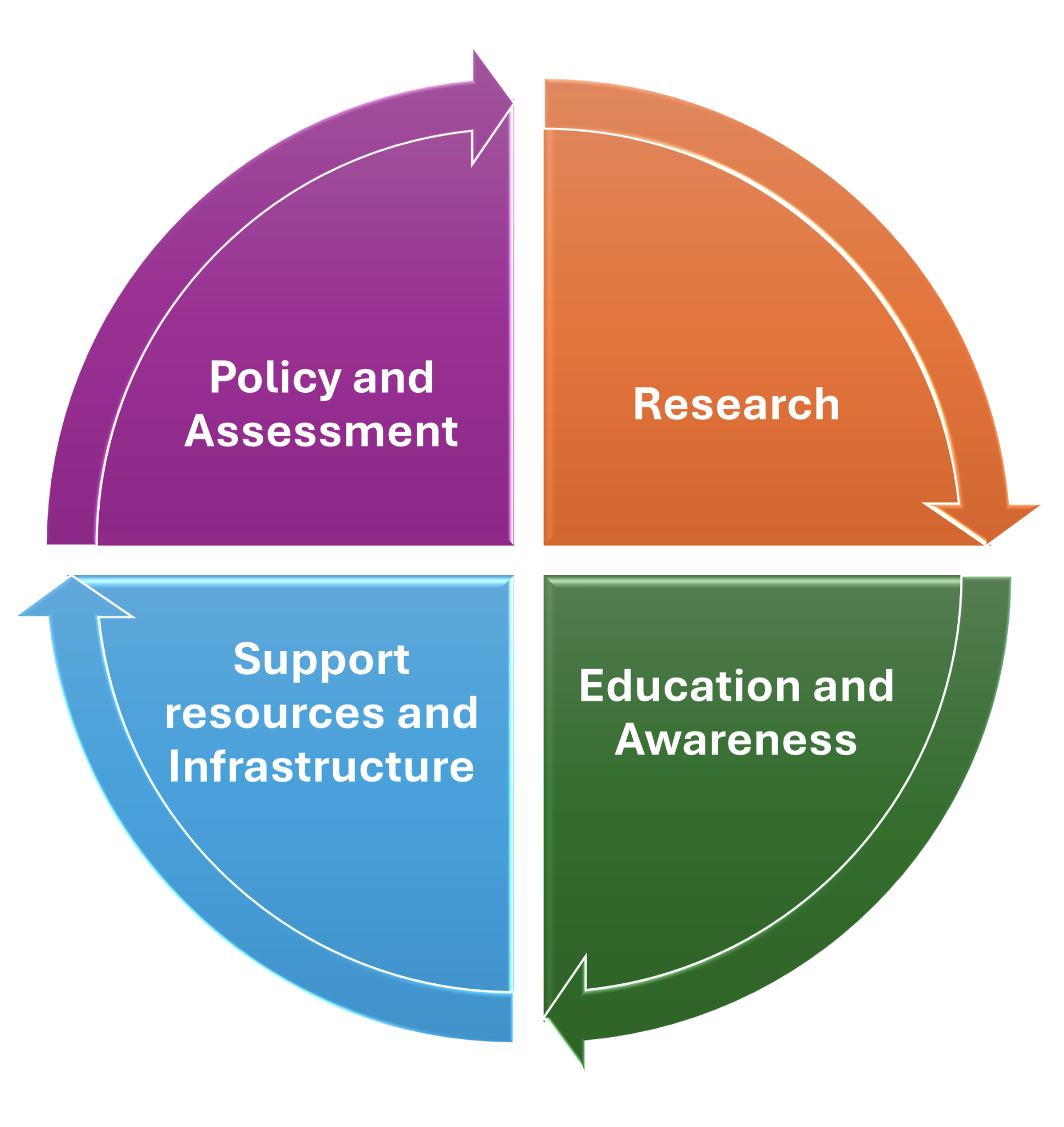
From this exciting journey, several key insights and recommendations can be offered to Research Performing Organisations (RPOs) interested in adopting citizen science as an inclusive research methodology and encouraging scientists to engage with its methodologies.

First, it is essential to communicate to the research community that citizen science is a legitimate and valuable research approach. Yes, it has its own limitations and biases - similarly to any other research method. Its value lies in combining different methodologies, allowing one approach's shortcomings to be balanced by another's strengths. Much like any other research technique, citizen science is a strategic tool to be employed when relevant and advantageous (e.g. see the decision framework in the work of Pocock and colleagues).
Second, it is crucial to identify and involve key stakeholders from across the organisation, including leadership, research support offices, faculty, and students. Engaging these stakeholders ensures broad support and alignment at every level of the institution.
Third, clearly defining ownership and responsibilities for various aspects of the project — from overall project management to administrative duties and task implementation — is key to ensuring smooth progress and accountability.
Additionally, designing tailored and impactful communication strategies is vital for engaging stakeholders effectively and addressing interdisciplinary challenges.
Daily business after institutionalisation
Olivia Höhener, managing director of Citizen Science Zürich — a joint competence center for citizen science of the University of Zurich and ETH Zurich since 2018 — continued by introducing the range of services and training opportunities that are being offered in Zurich in order to best support researchers interested in doing citizen science.
Project support
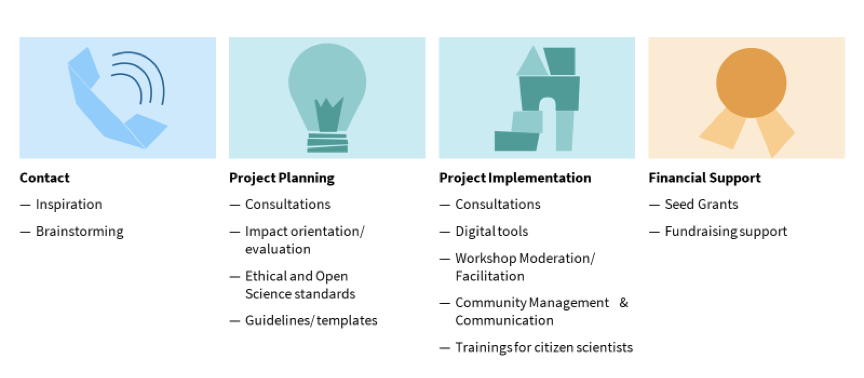
From the initiation of an idea to consulting on impact orientation, ethics and open science standards, the team of Citizen Science Zürich offers a wide range of project support for researchers. They also offer their own set of digital tools to be used for digital data collection and digital data analysis (Open Source), templates and guidelines. The range of support is constantly being improved and expanded in line with the requirements of the researchers. Team members of Citizen Science Zürich may also support researchers during the implementation of a citizen science project, facilitating workshops, supporting with community management, producing communication material or develop trainings for citizen scientists.
Drawing on the “10 Swiss Citizen Science principles “, it developed the “Citizen Science Checklist”, an interactive project guide to encourage researchers to reflect on how they can organise the participation and contribution of citizens in their projects in the most meaningful and beneficial way for everyone.
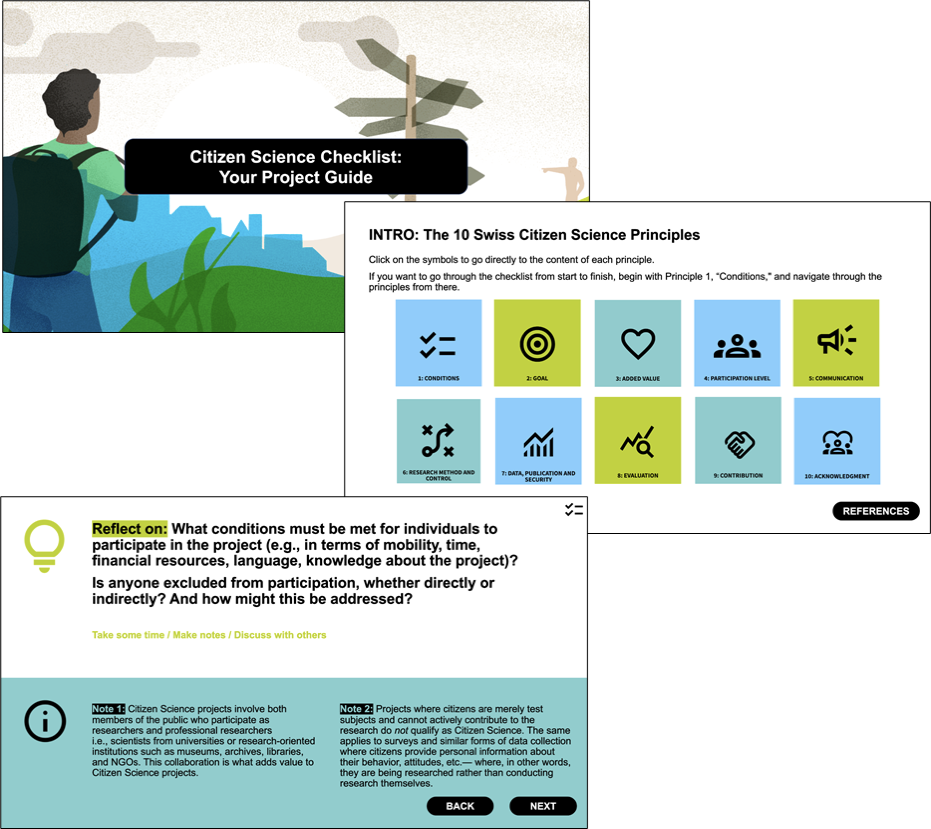
As for now, Citizen Science Zürich is offering seed grants once a year to support the development and initiation of new citizen science projects. This yearly call has proven to be invaluable for communication, giving Citizen Science Zürich high visibility within the two universities. Since the first call for proposals in 2019, 39 projects were supported with a total amount of 1.5 million Swiss francs.
Education and training
In addition to infrastructure and resources, Citizen Science Zürich’s focus is also on the skillset necessary for doing citizen science. Therefore, the team offers a range of training opportunities and further education programmes, always keeping the need for peer learning and networking in mind.
Since its pilot in 2020, the Citizen Science School (alternating a Summer or a Winter School) has become a permanent item on Citizen Science Zürich’s training programme. Focusing on early career researchers, it helps forging international connections to peers, exchanging with other citizen science initiatives and project leaders in Zürich while learning new methods and approaches for participatory research.
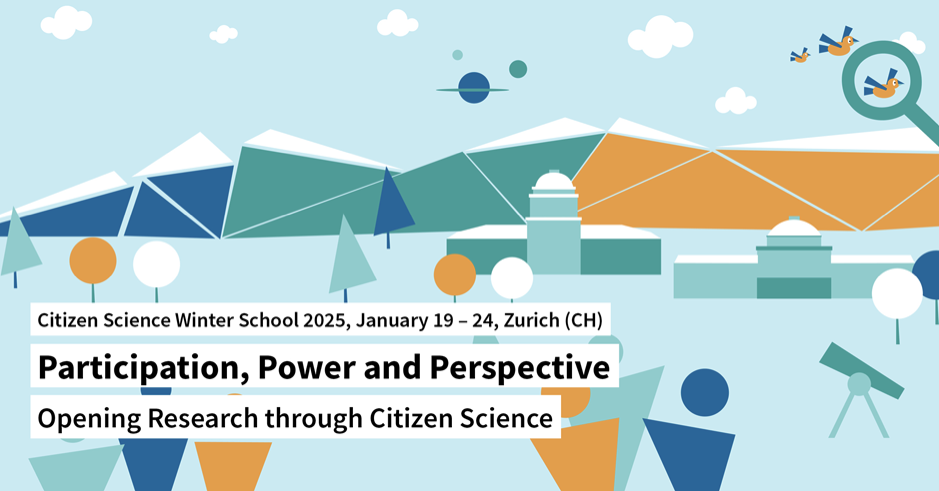
Since funding institutions increasingly wish to see a certain proof of competencies necessary to conduct participatory research projects, Citizen Science Zürich is currently developing (and planning to pilot in 2025) a Certificate of Advanced Studies in Citizen Science and Public Engagement in order to fill that gap. The course will tackle the challenges that arise within participatory research processes and emphasise on practice-oriented learning, collaborative learning, expert inputs and peer-to-peer counselling.
Conclusion
Independent from how long a Citizen Science Center or contact point have been present within a university, promoting the Citizen Science mindset and getting the message across remains a challenge and continuous communication is key.
Our tips for communication are:
- Grasp researcher by the challenges they have, not with general statements about why they should do something.
- Give researchers examples to show what you suggest is actually feasible. Stay “down to earth”.
- Show the added value and impact of citizen science by using other projects/ researchers as “ambassadors”.
- Make citizen science easy for researchers — show them you have the resources to support them.
Citizen science is not for everyone and not for every project. It is not just a pinch of salt, but a main ingredient.
Resources
- TIME4CS D1.4: TIME4CS statement to encourage Institutional Changes to promote Citizen Science
- TIME4CS D2.3: Final Version of the Compilation of Roadmaps and Grounding Actions for the Implementers
- TIME4CS 29 recommendations on how to institutionalise Citizen Science in your institution
- Pocock, M.J.O., Chapman, D.S., Sheppard, L.J. & Roy, H.E. (2014). Choosing and Using Citizen Science: a guide to when and how to use citizen science to monitor biodiversity and the environment. Centre for Ecology & Hydrology.
- Fedeli, M., Maffia, E. A., Prete, F., & Buccione, R. (2025). Institutional Changes to Embed Citizen Science in RPOs: The Case of UniSR as an Implementer Partner of the European Project TIME4CS. Journal of Research Management and Administration, 4(1).